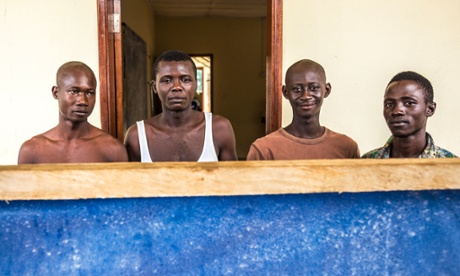Nearly 100 nurses, doctors and consultants are set to join 40 soldiers already in the west African country

British Army medics were due to arrive in Sierra Leone on Thursday to help in the fight against Ebola by operating a treatment centre specifically for healthcare workers.
Ninety-one people, including nurses, doctors and infectious disease consultants, will join 40 soldiers already in the west African country to work at the facility, which has 12 of its 92 beds set aside for those helping to treat others with the deadly disease .
A naval ship with 100 hospital beds and more than 400 personnel is also heading to the country.
Commanding Officer, Lieutenant Colonel Alison McCourt, of 22 Field Hospital which is based at Normandy Barracks in Aldershot, said her troops want to help provide a safe environment for medics.
“We need to provide sufficient reassurance to healthcare workers that will encourage them to come and help defeat this disease,” said Lt Col McCourt.
Before setting off the army personnel, who will be based at Kerrytown, around 30 miles from the capital, Freetown, had nine days of intensive training in treating those affected with the disease, which has killed more than 4,000 people.
Lt Col McCourt said: “This unit has been the ‘Vanguard’ medical regiment for the past 20 months which means we are on high readiness to deploy at short notice to anywhere in the world – although this is a bit different and provides us with a challenge we are perfectly suited to this kind of task.
“I firmly believe we can make a significant difference and it will be professionally rewarding for those taking part.”
Yesterday Ebola survivor and volunteer nurse Will Pooley said he is preparing to go back to west Africa to help deal with the epidemic because it is “something I need to do”.
The 29-year-old, from Eyke in Suffolk, said he knows that his family and friends will be worried but stressed that there was an urgent need for strong medical support to tackle the virus.
